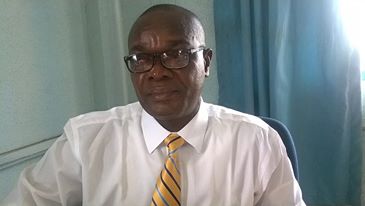Even as the Nigerian Shippers’ Council has continued its push for some landlocked African countries to make use of the Nigerian Ports as transit ports for goods destined for their countries, the National Director, Chartered Institute of Logistics and Transport Nigeria (CILT), Mr. Paul Ndibe has said that the idea will only end up as a dream unless the Federal government restructures the ports in Nigeria.
Ndibe who made his position known on the matter in an interview with our correspondent in Lagos said that a cursory look at the nation’s ports, one would discover that the ports had been balkanized and concessioned out to the private terminal operators wondering what level of control government would have on these operators as to make the idea work effectively.
He argued that if some people from a particular country other Nigeria had chosen a particular port in Nigeria as their preferred port of destination, it was expected that government should be able to influence the activities involving the port in terms of easy of movement of those goods from the point of loading up to the final destination point.
According to him,” If the current tonnage in terms of import to our port has the content of these countries you have mentioned, there will not be a problem. If they are going to be an addition to our current tonnage in terms of import, then what we need to do is to restructure developments around our ports. What I mean by this is, look at the ports, they are under terminal operators, although it is the importer that choses the port he wants his cargo to go, but would government have some level of control over the operators of some these private terminals? I don’t think so. Therefore, if some people are coming from a particular country, let us say Chad and they have chosen a particular port of destination, it is expected that the government would be able to influence the activities involving the port in terms of easy of movement of these goods from the point of loading up to the final destination.
“Are they looking at the railways? Are they looking at the roads? Are they looking at the ports, creating space to accommodate the ships that will bring in these goods for those countries? So, if there is an arrangement with some terminal that they bring in a particular import, at a particular time, through a particular shipping company, then that will be a seamless operation. So, what I am saying in effect is that, in reaching an agreement with those countries for Nigeria to act as a transit port, the terminal operators of the designated ports must be involved, Nigerian Pots Authority must be involved, Nigerian Shippers’ Council must be involved, the customs and other agencies so that as these goods are coming, they would be given a free hand for these commodities to be discharged. That is on the one level”.
While stating that he was aware that NPA and other agencies were investing towards improving the road network to the ports and also streamlining operations within the various ports, he maintained that with this development, the duration between the gate and the ship would be reduced.
He also observed that if they were able to streamline that arrangement, it means there would be a higher turnover rate which he said would help reduce the dwell time of cargo at the port.
“And finally, government should look more towards the rail because we are moving between 2, 000 to 3, 000 containers within one week and it means we need up to 3, 000 trailers at the port. What is the percentage of these trailers that will breakdown within the ports and create chaos and disruption to other operators? We need to look at that direction. Then if it is the rail that will give support to that, at what point will the trains start picking these commodities if they cannot get to actual port of destination?
“So, there should be an arrangement for freighting these containers from a particular port to a particular rail head where the trains can pick it up. Assuming it is Tincan and the railway cannot get to Tincan, there should be an arrangement of a short call with trailers so that the railway can now continue. But this is an arrangement that can be made with all the parties that are involved. They should sit down and look at it as a project”, he said.
When asked if the delay factor would not be an issue in this whole arrangement, he replied,” There won’t be delay if all the parties involved are in discussion and it is equitably distributed in terms of responsibility, in terms of revenue attributable to the cost they will incur, there won’t be a problem because all of them in business and they are to survive, therefore, their level of responsibility should march their level of cost and also the revenue derivable from the services they will render”.
Send your news, press releases/articles as well as your adverts to info@primetimereporters.com. Also, follow us on Twitter @reportersinfo and on Facebook on facebook.com/primetimereporters or call the editor on 07030661526, 08053908817.

